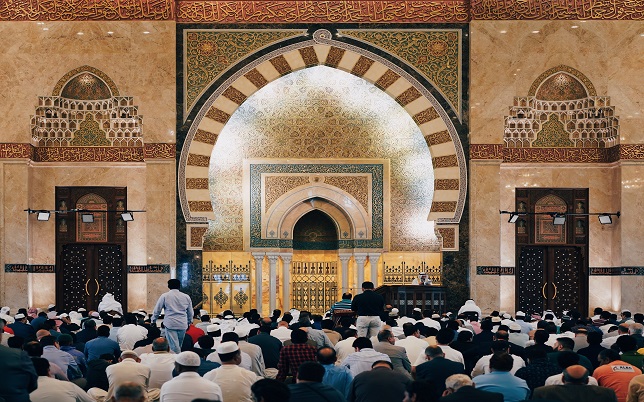In Islam the day of Friday has a special significance and Allah has selected Friday out of the whole week for His worship. On Fridays Muslims offer a special congregational prayer called Salatul Juma (Friday Prayer) instead of the normal Noon Prayers (Salatuz Zuhr).
In it two Rakahs are offered as against four Rakahs offered in the normal Noon Prayers. Also, unlike the Noon Prayer of other days which are offered silently, the Friday Prayer (Juma Namaz) is offered audibly.
Friday Prayer consists of such etiquette, instructions, and qualities which add significantly to its grandeur.
It also creates in worshippers a fresh desire and eagerness to sincerely pray to God, try to attain closeness to Him, unify Muslims and generate among them a spirit to help one another in matters of virtue and piety.
Allah states in the Quran:

O you who have believed, when [the azan] is called for the prayer on the day of Jumu’ah [Friday], then proceed to the remembrance of Allah and leave trade. That is better for you, if you only knew. [62:9]
The importance of the Friday Prayer has also been emphasized in the following Hadith:
Allah seals the heart of a person who misses Friday Prayers for three weeks out of laziness.
Getting Ready for Friday Salah
Muslims have been instructed to prepare for Friday Prayer by:
- Taking bath
- Brushing their teeth with Miswak (soft twig brush)
- Applying perfume
- Attaining as much cleanliness as possible.
On Friday Prayer a Khutba (sermon) is also delivered by the Imam.
The Khutbas delivered by the Prophet (blessings and peace be on him) were not lifeless, dull or devoid of message and instruction. Instead, they used to be fully relevant to the lives of the people and situations of the time.
Muslims are instructed to listen to the Khutba quietly and attentively so that they could fully benefit from the teachings and instructions contained in it in the serene and spiritual environment of the mosque.
In fact, the Khutba is an act of prayer, not a piece of oration. That is why it is strictly forbidden for Muslims to talk during the Khutba.

